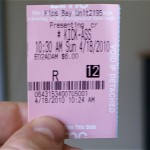 The storm came across the water, a wall of rain pushing toward shore and obscuring everything beyond it. Soon, it swept across the yard and hammered the large, glass windows.
The storm came across the water, a wall of rain pushing toward shore and obscuring everything beyond it. Soon, it swept across the yard and hammered the large, glass windows.
Will took another sip of his tonic water and orange juice cocktail and welcomed the sound of the precipitation. Yesterday had been sunny, and that hadn’t seemed right. Not for a day when so much had gone wrong. This was better. At least now, the weather was matching his mood.
He sat down in his green armchair and looked at the stuff of his life: the handmade Turkish rug, the coffee table they’d made together out of an old door and a pane of glass, the series of monoliths comprising the home entertainment center, all of them quiet now, powered off.
Why wasn’t he drinking yet? He’d always imagined that if Mary died, he’d start drinking again, yet here he was, sitting alone with a non-alcoholic drink in his hand. Was it hope–some idiotic idea that she might come walking back in the door?
She’s gone, pal, he thought to himself. I don’t know what you’re waiting for.
But he’d done nothing. He’d prepared food, he’d eaten, he’d slept. But he hadn’t turned on the television, opened a book, or played any music since yesterday morning. He sat and stared. A day had passed. He continued to sit and stare, numb and frozen as the storm intensified, shaking his house, and his house withstood it,
staying right where it was.

